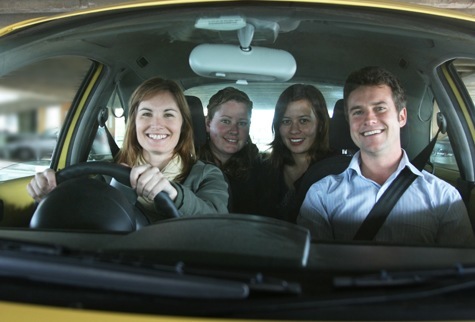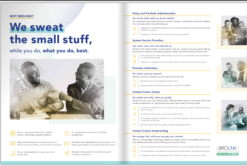
The Legalities of Lift Clubs


With petrol prices creeping up, it’s a smart move to look for ways to save on transport bills. Carpooling has been a popular way to shave a tank or two off the monthly expense list, but there are some important issues that you have to address before you invite people to travel with you. Whether you offer to transport kids or colleagues, or you make use of a service you could be exposing yourself to some serious financial risks.
While lift clubbing has benefits for all parties, if you don’t have the correct car insurance and cover permits in place, you could be opening yourself up to hefty lawsuits or unpaid insurance claims.
If you set up a car pool and you operate for profit, in other words; make more money than just a contribution towards petrol, you will need to acquire a Professional Driver Permit (PrDP). You must state that you are a “professional” driver when licensing the vehicle and you will be required to roadworthy the vehicle every year. It may come as a surprise but you will also be required to register as a taxi operator and this means that you will have to comply with all of the regulations.
Before you can take your kid’s friends to school, you must obtain written permission from the child’s parent, stating that they allow the child to be transported in your vehicle. In addition, you must have a written policy for transporting children in your vehicle and it must include details of your insurance cover in terms of liability.
The next vital step is to inform your insurance company that you will be transporting people for profit. If you have car insurance but neglect to inform your insurer that the “purpose of use” has changed, the insurance company, would in all likelihood not pay a claim and they may even cancel your cover. Using your car as a “taxi” changes the use of the vehicle from personal to business and this would lead to an increased premium.
Most policies may specifically stipulate that individuals are not allowed to carry fare-paying passengers, so it is important to chat to your insurer, to see what is and is not allowed.
If you are using an informal taxi service you need to ensure that the driver has all the necessary permits, licences and insurance cover. If the operator owns vehicles or rents from a third party company, then the policy would need to include the amount of liability insurance on those vehicles. However, if the operator does not own any vehicles and relies on taxis, or perhaps various parent volunteers, to transport children on field trips, the operator would not be required to include the amount of liability insurance on those vehicles.
Drivers are required to have a professional driving permit if they are carrying 12 or more persons including the driver. New proposed legislation will require all pupil transport vehicles to be easily identifiable with unique branding and operators must be licensed and registered with the provincial regulatory authority. All vehicles transporting pupils must be roadworthy and the department of transport is establishing a drivers’ code of conduct. This code of conduct will include preventative measures for emergencies, first aid and advanced driver training.
All of these measures would have to be in place for an insurance claim to be valid. It is critical that parents of children using school transport, ensure that these requirements are being adhered to. If your child is injured in an “illegal” taxi you will not be able to claim from their insurance to cover the medical costs because their policy would be null and void. You could make a claim against the driver in their personal capacity but the outcome is rarely satisfactory because they often do not have the means to pay the claim, in addition it will cost the litigant many thousands of rands to sue.
Unfortunately the informal transport industry is rife with broken rules, and it only comes to the fore when an accident occurs. A comprehensive and valid insurance policy goes a long way in assisting both the operator and the passenger in the event of an accident.
Source: Hollard


